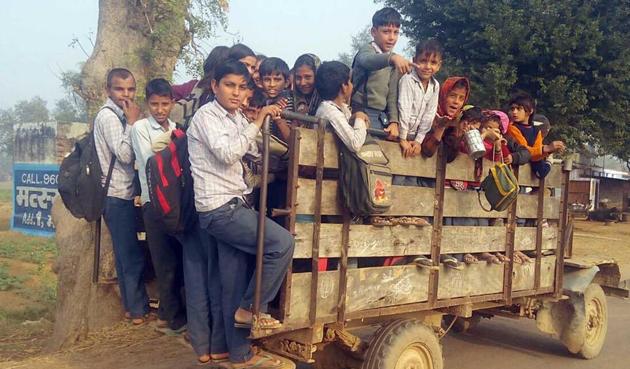HRD ministry proposes to replace pen-and-paper test with better assessment module
The new performance module, if approved, will be applicable to all schools, irrespective of board
The ministry of human resource development has proposed to change the way schools assess the performance of their students. If the proposal is approved, schools will no longer be allowed to assess a student’s performance only by a simple pen-and-paper test, but also make use of ‘learning outcome modules’ that will be introduced soon.

Put together by the National Council of Educational Research and Training (NCERT), the proposal aims to improve assessment tools that schools use to judge the performance of a student and to shift focus away from traditional rote-learning methods. The module will be applicable to all schools, irrespective of the education board.
While city schools have given the concept a thumbs-up, educationists are sceptical whether the rules will be implemented. “The state board focuses too much on the theory part of the curricula, whereas such learning outcomes will do our students good. The government, however, should make sure the structure in place is very strong and easily adaptable,” said Father Jude Fernandes, principal, St Mary’s School (SSC) in Mazgaon. He added that before implementation of the new methodology, government should also invest time on training teachers so that they are well-versed in the use of the new assessment tools.
One of the reasons why the government wants to change assessment tools is the widening gap between learning outcomes in rural and city schools. The move to bring into force a learning outcome stems from the Annual Status of Education Report (ASER), by non-government organisation Pratham, which has, in annual studies, highlighted the poor learning levels in rural schools. The reports have highlighted the fact that many class V students in rural schools cannot do simple mathematics of class II level. The HRD ministry hopes to do away with the rote learning culture in schools by implementing the learning outcome methods.
While most schools have agreed that the plan will benefit students in the future, some are sceptical. Schools have often highlighted the need to introduce more activity-based learning modules for younger classes, instead of focusing on learning theory. “Activity-based learning always attracts maximum students and we’ve noticed that they also understand the concepts better. Unless the basic curriculum doesn’t undergo changes, such learning modules will not be of much help,” said Seema Maindiratta, principal of DAV School, Kharghar.
Others doubted if uniform ‘learning outcome’ parameters will be work considering that there are different school education boards in the country. Different boards, including CBSE, ICSE, IGCSE and the various state boards are currently running on different syllabus, and introducing uniform parameters to assess the performance of students from different boards will pose a problem, said a principal.
“Instead, the government should focus on bringing about some uniformity in the syllabus of various state boards. A uniform tool to gauge performance of students from different boards, and parts of the country, will be a very big challenge,” said Carl Laurie, principal, Christ Church School, Byculla
Principals said that if the proposal has to work it has to implemented from the very top. “If it comes from the HRD ministry, schools will adapt. If there’s enough support and guidance from the government resources, then even teachers will have no problem in following orders,” said Avnita Bir, principal, RN Podar High School, Santacruz. She added that implementation should also involve ‘hand-holding’ teachers through the nuances of the process in the beginning to ensure best results.
Farida Lambey, co-founder and director of Pratham told HT that while the intent in introducing such a concept is appreciated, the final execution is what matters. “The parameters need to be made very clear, and then have assessment tools relevant to the content being taught. Keeping in mind the various education boards functioning in our country, it is important to have in place a learning outcome that includes everybody, and assesses students on the same parameters,” she said.
Also read




